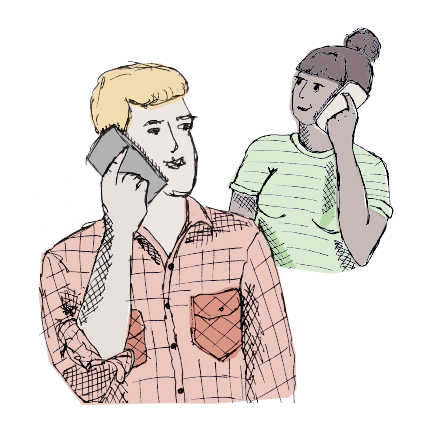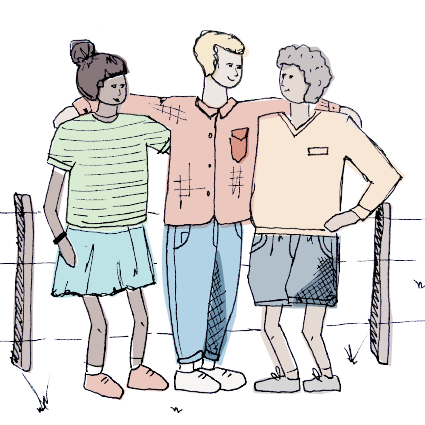Coping with stress from the drought
Dealing with stress from the drought can be really tough – from worrying about family, money and even feelings of loss.
It can be hard to spot the effects of stress in yourself, so it’s important to take time to check in on how you’re feeling and to take steps to look after yourself. This might seem really difficult, but if you look after yourself, you’ll be in a better place to support your family and community, too.
Check out how to better cope with stress from the drought below.
1. Recognise stress
By noticing any changes in your body, in how you’re feeling and what you’re doing, you can see when your stress is spiralling and then do some things to reduce it. Look out for these signs:
headaches, poor sleep, changes in eating habits
you're always tired, or lack energy or motivation
you feel angry or irritable a lot
you're worried or nervous
you often feel down or depressed
forgetfulness
increased alcohol or drug use.
2. Talk to someone
Talking about your feelings can be tough, especially if you feel like you’re adding to other people’s stress. In reality, friends, family and neighbours can all be great at listening, and are probably experiencing some of the same worries as you.
If you don’t feel comfortable talking to someone you know, there are other options. Telephone helplines (such as Lifeline, Country Call Back or Kids Helpline) are available for confidential support and advice.
3. Stay connected to your community
Try volunteering at or attending events at the local hall, chatting to neighbours or organising to go for a walk with someone from your community.
Join a Facebook group like ‘Talkin’ About Drought’ or ‘One Day Closer to Rain’.
4. Look after yourself
Start with the basics: make sure you’re getting enough sleep, try to eat healthily and exercise regularly (away from work if possible).
Aim to spend 30 minutes each day doing things you enjoy, whether that’s reading, listening to music, watching a movie or something else.
Spend time with family and friends Limit alcohol and drugs.
5. Get support
If you’re feeling overwhelmed by everything that’s going on, it’s important to get professional support.Seeking or asking for help isn’t a sign of weakness and doesn’t make you any less resilient.
Head to Reachout.com/drought for a list of organisations and helplines that can support you.
What can I do now?
Read more about dealing with isolation and loneliness in rural and remote areas.
Find out what happens when you call a helpline.
Watch our video on why talking helps.
Check out other resources on stress.




